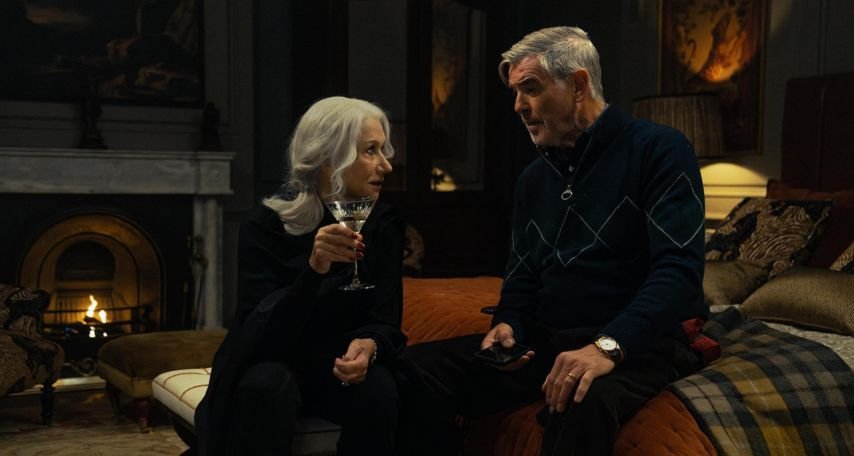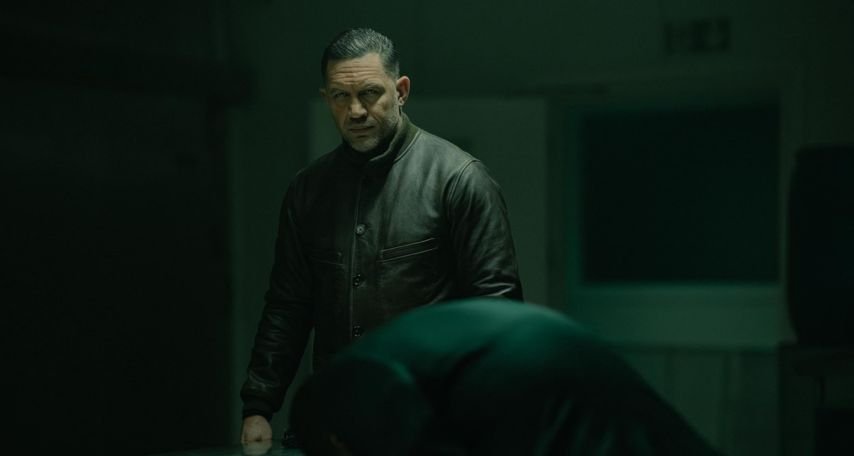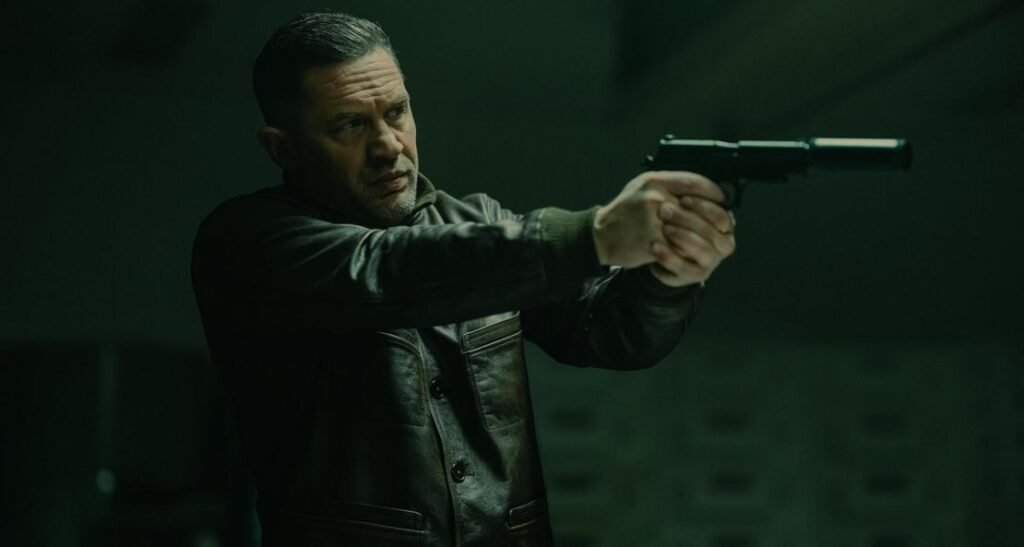There’s a particular stillness in Tom Hardy’s performances that’s easy to overlook if you’re only watching for the explosions. He doesn’t play loud. He plays loaded.
That same unnerving stillness that made Taboo’s James Delaney feel like a man carrying ancestral rage in his marrow shows up again in MobLand—only now it’s wearing a sheriff’s badge and quietly unravelling beneath it.
Paramount+’s MobLand (originally titled The Donovans) is a Guy Ritchie-produced crime saga that doesn’t operate like most Ritchie projects.
There’s no hyper-stylised banter or breakneck editing. Instead, it unfolds like a quiet implosion in slow motion—thick with atmosphere, moral corrosion, and the kind of haunted masculinity Hardy keeps returning to.
And that’s where the echo begins. If you’ve seen Taboo, or if it’s been sitting quietly in the back of your mind for the last eight years, this won’t feel new—it’ll feel familiar.
Our full breakdown of Taboo’s return captures that lingering hold Hardy never let go of.
A Show That Begins in the Ashes

MobLand isn’t about power grabs. It’s about power already lost. Set in a grimy Florida town that feels barely held together, the show follows a family of Irish gangsters—the Donovans—whose criminal legacy is as much a curse as it is a crown.
Hardy plays Harry Da Souza, a street-smart fixer whose loyalty to the family is laced with ambiguity. He’s not there to restore order. He’s there to keep things just broken enough to manage.
As noted in The Guardian’s MobLand review, Hardy’s screen presence alone gives the series a weight it might not have earned otherwise.
He barely speaks, but when he does, you listen. Not because of what he says, but because of how much he doesn’t.
There’s something fragile in the way he moves, something watchful. Not weak—just damaged in a way that makes his silence feel persona
The Echoes of Delaney
At a glance, MobLand is contemporary and Taboo is historical. One is a fixer, the other a mystic with a ledger full of ghosts.
But beneath the surface, both series orbit the same thematic black hole: how systems rot from the inside, and what kind of person survives that decay.
Hardy’s characters don’t evolve in traditional arcs. They reveal—slowly, often wordlessly, and only when it’s already too late.
In both roles, he plays men with unspoken pasts and unpayable debts, navigating power structures that were corrupt long before they entered the frame.
Whether it’s the East India Company or a dynasty of Florida gangsters, the institution always wins—until Hardy’s characters start quietly tearing it apart.
There’s also the physicality. Delaney and Da Souza both operate with a kind of bodily tension, as if holding back some latent violence or vision.
In Taboo, it’s spiritual possession. In MobLand, it’s moral implosion. But the effect is the same: you don’t trust their silence, and you shouldn’t.
The Story Unfolds Like a Threat
Unlike the kinetic pace of other crime dramas, MobLand works in ellipses. Whole scenes play out with pauses longer than the dialogue.
There are episodes where you feel like the camera is eavesdropping more than observing. This isn’t a story about what people do. It’s about what they carry.
Critics have had mixed responses, as reflected on Rotten Tomatoes, where viewer reactions highlight both admiration for the performances and frustration with the pacing.
And here’s where Taboo’s shadow is clearest. In both shows, plot is secondary to atmosphere. You’re not being guided by exposition; you’re being submerged in tone.
In Decider’s recap of Episode 3, the series’ tension comes to a head in scenes that strip away dialogue almost entirely, forcing viewers to read into the silence.
The Hardy Mythos

Whether deliberate or instinctual, Hardy’s choices always flirt with myth. Delaney was practically elemental—mud, water, smoke.
In MobLand, Da Souza isn’t supernatural, but he might as well be. He’s the man in the room who says the least and understands the most.
And it doesn’t hurt that MobLand was shot while the actor was also pushing forward on Taboo Season 2.
The timing alone is telling: these characters aren’t just similar. They might be feeding each other.
MobLand Is Not Taboo 2.0 — But It Doesn’t Have to Be
MobLand isn’t trying to recapture the gothic grime of Taboo, nor should it. This is a modern crime drama rooted in decay, not mysticism.
But what it does share is a refusal to rush, to explain, or to pander. It trusts that you’ll sit with discomfort, and that you’ll recognise when a scene is about power shifting, not power spoken.
It also trusts Hardy to say more with one look than most scripts do with three monologues. And if you’ve seen Taboo, you already know he can.
You might also like:
- American Primeval: Netflix’s Brutal Western and the Controversy It Ignited
- A Thousand Blows on Disney+: A Gritty Triumph Rooted in History, Power, and Bare-Knuckle Survival
- Hulu’s Good American Family: A Disturbing Reimagining of the Natalia Grace Case
- Anatomy of Lies: The Scandal, the Storylines, and the Scrutiny


